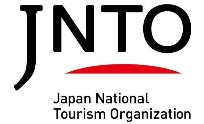
JAPAN COMMITTED TO SUSTAINABLE TRAVEL AND EVENTS (Japon)
Sustainability has become more than a challenge for travel and business events: it is now a necessity. |
 |
JAPAN COMMITTED TO SUSTAINABLE TRAVEL AND EVENTS (Japon)
Sustainability has become more than a challenge for travel and business events: it is now a necessity. |
Catégorie : Asie Pacifique - Japon - Économie du secteur
- Développement durable
Ceci est un communiqué de presse sélectionné par notre comité éditorial et mis en ligne gratuitement le 08-04-2022
While Japan is progressively reopening its borders – with notably some business travellers allowed to enter the country again – the national and local tourism and MICE organisations have become more and more committed to the transition of their industries towards sustainable development in the post-Covid era.
The Japan National Tourism Organization (JNTO) – the Japanese government agency dedicated to promoting the country abroad and helping travel and event professionals with their activities there – has recently been incorporating in its strategy the fulfilment of the UN’s Sustainable Development Goals.
The SDGs allow JNTO to have a large set of goals, embodied in the following: protecting and nurturing local environments and their biodiversity, respecting and preserving local cultures, and supporting local economies.
Following the direction of its mother organisation, the Japan Convention Bureau, is also supporting the inclusion of sustainability in future international congresses and incentive travels.
In the new section of its website sharing 42 ideas for incentive travels, the Japan Convention Bureau suggests a number of activities and destinations that engage travellers in sustainability-related experiences.
Here are 3 examples
-
Overnight stay in World Heritage Site Gokayama.
A rare sight in Japan, Gokayama Village stands out with its ancient houses, whose thatched roofs were built by hand following the Gassho-zukuri technique. The village is ranked as a World Heritage Site by UNESCO and can be visited by incentive travellers, who will discover this part of Japan’s history and contribute to its preservation and transmission to future generations.
-
Forest Bathing in Shirataki
Forest bathing (or Shinrin-yoku) is a Japanese practice that has caught people’s attention globally. Studies show that immersing oneself in the forestand reconnecting to nature offers varied benefits for the body and mind. In Central Japan’s Shirataki, incentive groups can go on a hike on the Shirataki Daimyôjin mountain, which has been fully enshrined as a deity. The trail follows the path of Buddhist monk apprentices in training. This wellness tour will also allow them to learn about the dietary aspects of Eastern medicine when tasting local foods.
-
Tree-Planting for Coral Protection on Ishigaki Island
Ishigaki Island, in the Okinawa archipelago, is an island surrounded by coral, which plays an essential role in the ecosystem and the daily life of its population. This coral has however faced the threat of extinction in recent years, endangering the environment and the economy of the island. Incentive groups coming to enjoy the island’s tropical weather can also take part in a reforestation activity, which prevents the erosion of red clay soil into the ocean and therefore protects the coral, marine life, and the environment as a whole.
In French-speaking Europe, the Paris office of JNTO is also playing its part. It recently published a new website section and brochure titled The Art of Sustainable Travel in Japan (in French), where it shares information and tips to make travelling in Japan more sustainable.
In addition, it collaborated with the publishing house Tao to release the first guide on ecotourism in Japan in French.
On the local level, the Japanese cities and prefectures’ Convention Bureaus have been implementing new measures towards sustainable events. Sapporo, in Northern Japan, shows its continued commitment through its inclusion in the Global Destination Sustainability Index, which assesses the progress made by the city in sustainable and regenerative travel and events. The GDS Index is then a precious tool to readapt the city’s strategy and efficiently support the transformation of its industry.
Yokohama presents a number of initiatives taken by facilities in its case studies, such as the convention centre PACIFICO Yokohama, where rainwater is collected on the exhibition hall roofs and used to cool the private generators as well as being recycled in toilets.
Moreover, electric power generated by incinerating the industrial wastes discharged inside the facilities is reused as power in the waterfront park.
Kyoto has developed a carbon-offset programme available for meeting planners. The programme offers to purchase carbon credits generated by neighbourhood associations and SMEs which have reduced their carbon emissions by optimising their facilities and saving energy.
“Following the pandemic, we have seen the increasing demand, both abroad and in Japan, for greener travels and events. JNTO, and its Paris office, have shaped a new strategy to support the future return of visitors to Japan while encouraging a new form of travel, more respectful of the local environment and contributing to local society. We will pursue these efforts in the post-Covid era”, assures Tsuyoshi Murakami, General Director of JNTO’s Paris office.
|
|




